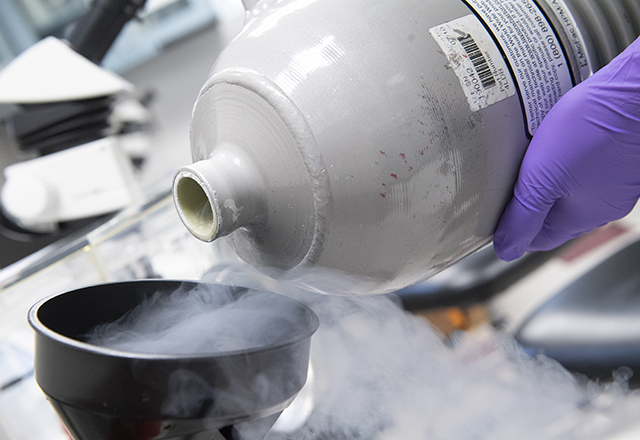
The oversight of cores ultimately lies within the Office of the Provost at The Johns Hopkins University and the Office of the Dean within individual schools. In addition to the roles and responsibilities of the provost and deans of research, there are other key committees that play an important role in the success of our core facilities. These include Research and Individual Core Scientific Advisory Committees.
On This Page
Research Core Scientific Advisory Committee
While each core offers unique expertise, services and/or products to researchers, The Johns Hopkins University strives for a common management philosophy fundamentally dedicated to supporting high-quality scientific investigation. This philosophy is actualized through the work of the core advisory committee, which ensures that fair and consistent standards are used in the creation, maintenance and termination process of each core.
The advisory committee is composed of faculty members with a broad view of the research enterprise, faculty representatives who have been identified as users of the services, representatives from the Office of Research Administration and financial/administrative representatives of the schools on the appropriate campus. The membership is approved by the provost or dean for research or his/her designee.
This committee acts in an advisory capacity to the provost or deans for research. It is responsible for:
- Reviewing and approving all requests for new cores for scientific quality and need, and assigning a priority for allocation of resources prior to submittal to the provost or dean for research approval.
- Ensuring that faculty members have a voice in the development of new services and that scientific/core directors are held accountable to the faculty.
- Advising on standards and requirements for the core designation, continued operations and termination.
- Providing a mechanism to recommend termination of core operations in whole or in part when necessary, as when usage has diminished or the same high-quality service becomes available through commercial sources at lower cost.
- Conducting annual evaluations of current cores. Annual evaluations will ensure that cores meet both scientific and fiscal expectations and continue to add value to the Johns Hopkins University research community.
- Advising investment in new instrumentation and/or new core services that are deemed of sufficient value to the scientific community.
Individual Core Scientific Advisory Committee
Many technically or administratively complex cores have established scientific advisory committees of faculty members who are knowledgeable about the technologies employed by the core facility, have a stake in the core facility’s success and broadly represent the user base. They are generally responsible for:
- Meeting regularly with the scientific/core director to review the success of services.
- Advising on the need for technology renewal, personnel, financial and other issues required to ensure success of the core.
- Making recommendations to the department chair, division director, or center director and the vice dean for research.